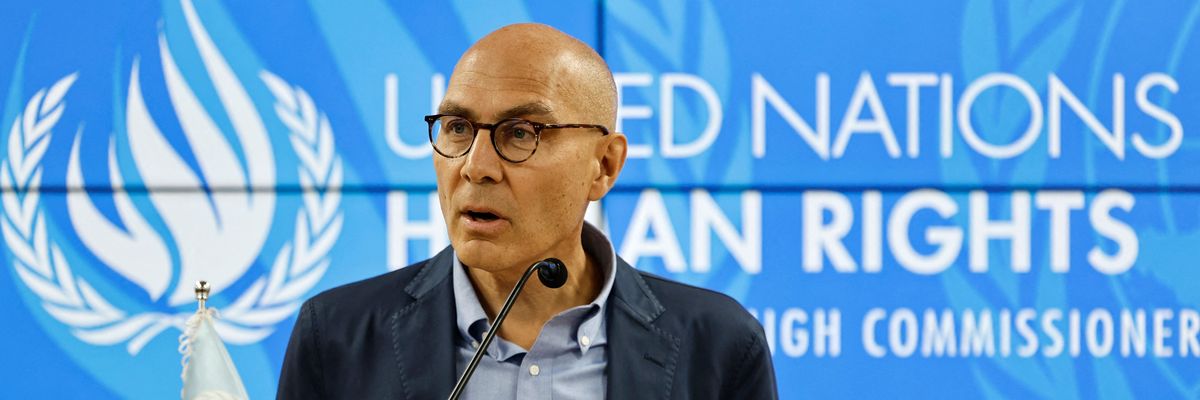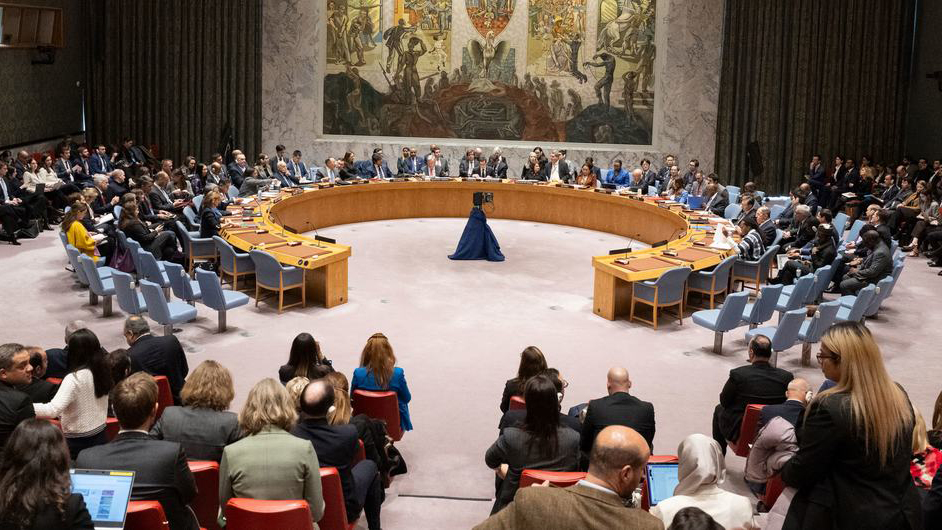UN Rights Chief Demands International Probe of Mass Graves Near Gaza Hospitals
Original article by JAKE JOHNSON republished from Common Dreams under Creative Commons (CC BY-NC-ND 3.0).

(Photo: Khaled Desouki/AFP via Getty Images)
“Hospitals are entitled to very special protection under international humanitarian law,” said Volker Türk, the United Nations high commissioner for human rights.
The United Nations’ human rights chief on Tuesday called for an international investigation into mass graves discovered at two Gaza hospitals that Israeli forces recently assailed and destroyed, further imperiling the enclave’s barely functioning healthcare system.
Volker Türk, the U.N. high commissioner for human rights, said in a statement that he was “horrified” by the discovery of mass graves at the Nasser and al-Shifa medical complexes, which the Israel Defense Forces (IDF) reduced to ruins.
More than 300 bodies were reportedly discovered in the mass grave near the Nasser facility in Khan Younis, Gaza, and eyewitnesses said Israeli soldiers executed civilians during their two-week-long raid of al-Shifa last month.
Türk demanded an “independent, effective, and transparent” probe into the killings and mass graves, adding that “given the prevailing climate of impunity, this should include international investigators.”
“Hospitals are entitled to very special protection under international humanitarian law,” he added. “And the intentional killing of civilians, detainees, and others who are hors de combat is a war crime.”
“Every 10 minutes a child is killed or wounded. They are protected under the laws of war, and yet they are ones who are disproportionately paying the ultimate price.”
The IDF’s destructive attacks on Nasser and al-Shifa were part of a broader Israeli assault on Gaza’s healthcare system. An analysis released Monday by Save the Children found that the rate of monthly Israeli attacks on healthcare in Gaza since October has exceeded that of any other conflict around the world since 2018.
The group estimated that Israel has launched an average of 73 attacks per month on healthcare in Gaza—and at least 435 attacks total since October.
“After six months of unimaginable horror, the healthcare system in Gaza has been brought to its knees,” said Xavier Joubert, Save the Children’s country director in the occupied Palestinian territory. “Healthcare workers are risking their lives daily to give Palestinian children a chance at survival. The constant attacks on healthcare are simply unjustifiable and must stop. Palestinian children must have unimpeded access to services, including healthcare and education.”
Türk also used his statement Tuesday to condemn Israeli forces’ killing of women and children in airstrikes on the southern Gaza city of Rafah in recent days. The human rights official noted that Gaza doctors rescued a baby from the womb of her mother as the latter succumbed to head injuries from an Israeli strike.
“The latest images of a premature child taken from the womb of her dying mother, of the adjacent two houses where 15 children and five women were killed—this is beyond warfare,” said Türk. “Every 10 minutes a child is killed or wounded. They are protected under the laws of war, and yet they are ones who are disproportionately paying the ultimate price in this war.”
Original article by JAKE JOHNSON republished from Common Dreams under Creative Commons (CC BY-NC-ND 3.0).
